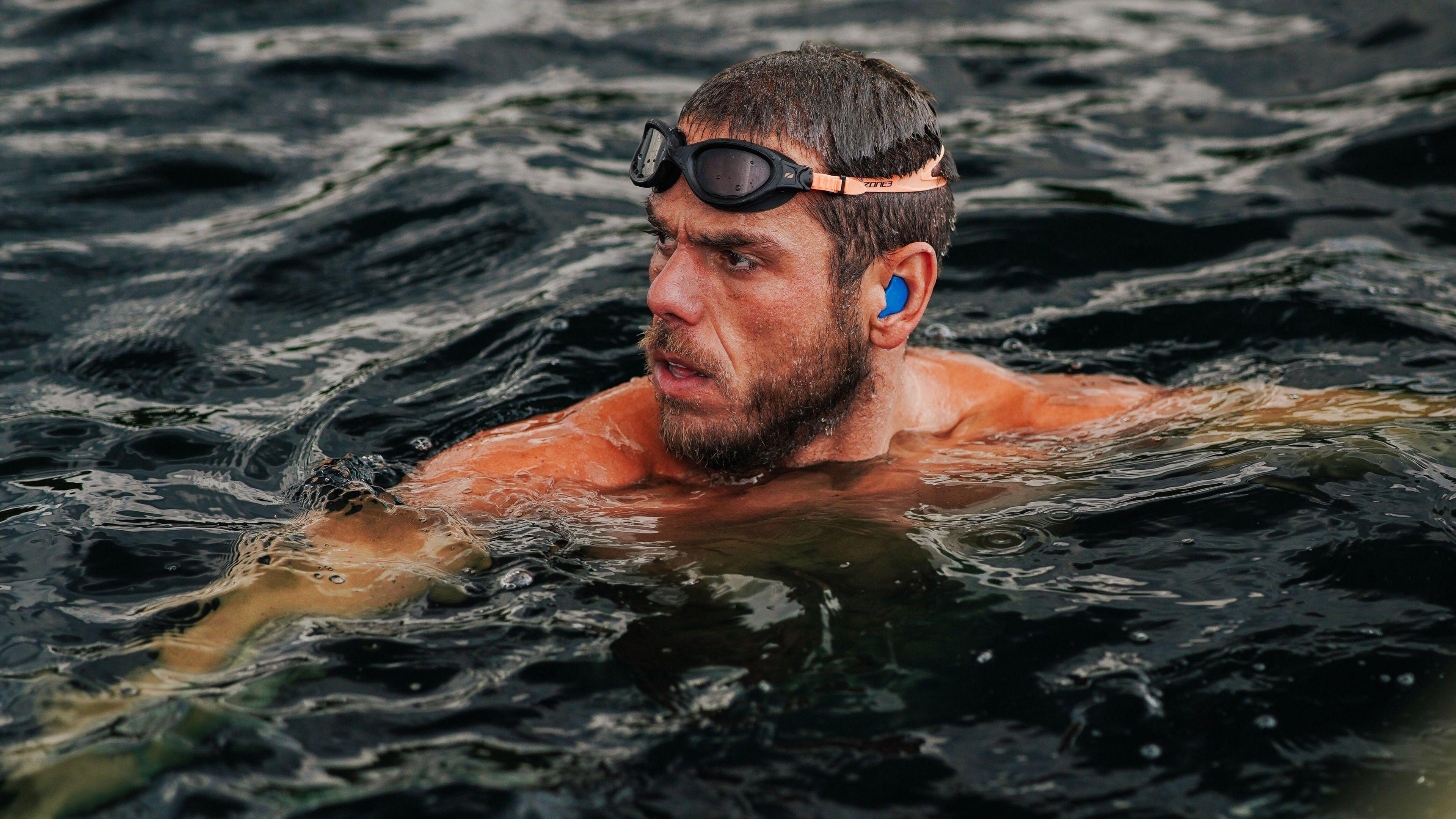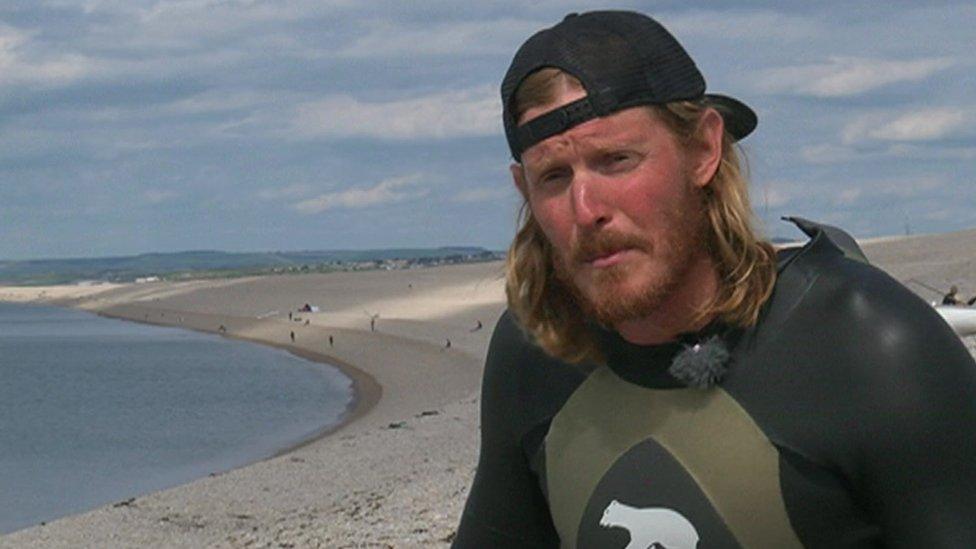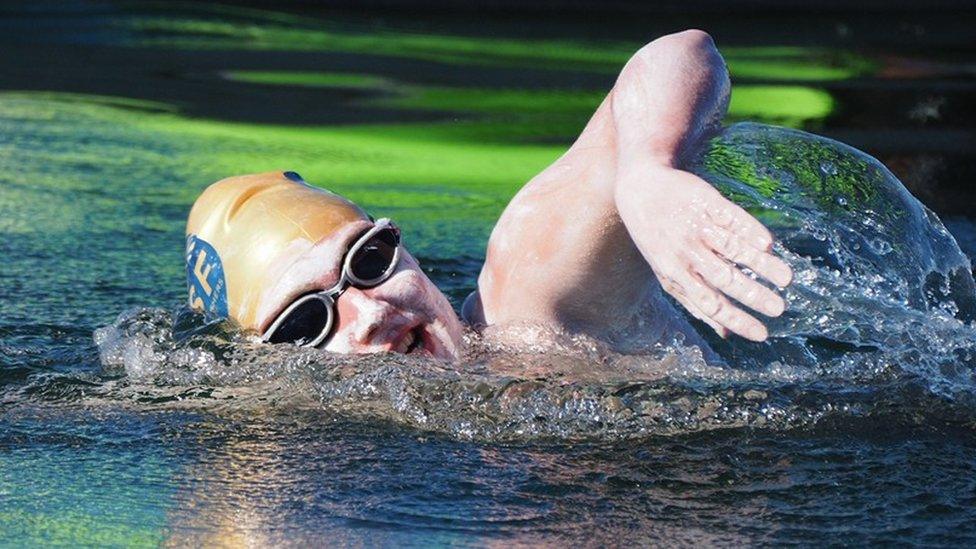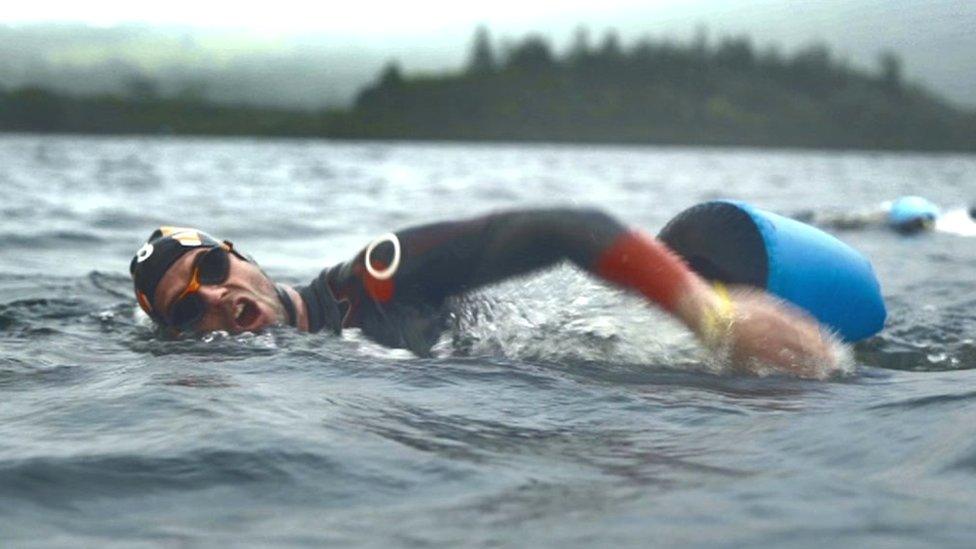Ultra-swimmer's record attempt in name of science

Ross Edgley said he lost weight during training describing it as a difficult but necessary part of the challenge.
- Published
An ultra-swimmer is aiming to break a world record in the name of science.
Ross Edgley, from Alderley Edge, Cheshire, said he planned to swim the longest distance ever completed in a pool over one week - but that the world record was a "secondary goal".
The challenge will see him attempt 223 miles (360 km) in a pool in seven days.
The 38-year-old will have to swim for an average of 15 to 18 hours per day while working with sports scientists to determine how calorie intake impacts swimming.
'A noble cause'
The challenge will take place at the Best Centre in Mallorca, Spain, between May 19 and May 26.
Mr Edgley said he had lost weight during training, dropping from 16 stone (102kg) to 12st 8lb (80kg), describing it as a difficult but necessary part of the challenge.
“I don’t get ‘hangry’, I get ‘sangry’ where I just get sad,” he said.
“It’s just the idea of kind of suffering, but for a noble cause."
Mr Edgley is versed in long distance swimming after completing the Great British Swim, which saw him swim around Great Britain in 158 days, and he broke the record for the longest ever open water swim in Loch Ness.
The ultra-swimmer said he thinks about Greek mythology during his swims, referencing the myth of Sisyphus, who was ordered by the gods to repeatedly push a boulder up a hill.
“I think in some ways the dieting, the tediously swimming up and down seven days… that is my boulder, as it were," he said.
'Upper limit'
The main part of the research, supported by PhD Nutrition, is to determine how much food an endurance athlete can eat while maintaining their performance, which is an area Mr Edgley believes is seldom considered during training.
“We’re looking at the upper limit of what the human digestive system can actually process during endurance sport,” he said.
“It’s so interesting that I think that’s what this swim will come down to. It won’t be stroke rate or heart rate – it’s ‘can you keep eating and keep moving forward?'
“Whatever happens afterwards, the world record is nice, but that is secondary.
“This could be such a unique study that we hope to get published as well.”
Listen to the best of BBC Radio Manchester on Sounds and follow BBC Manchester on Facebook, external, X, external and Instagram, external? You can also send story ideas to northwest.newsonline@bbc.co.uk, external
Related topics
More like this story
- Published23 August 2021

- Published17 September 2019

- Published12 August 2021
